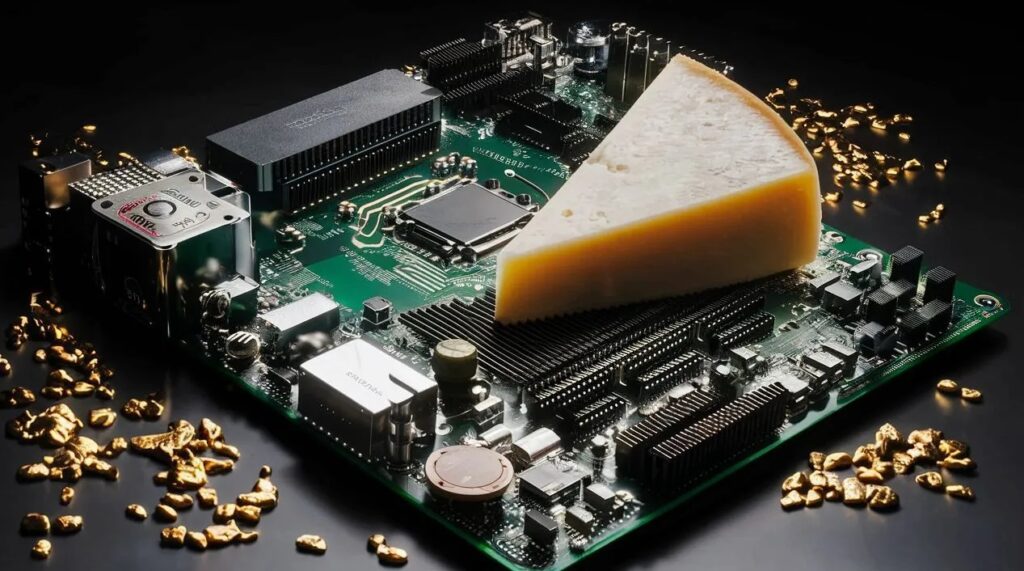15/07/2024
15/07/2024

SWITZERLAND, July 15: Scientists at ETH Zurich in Switzerland have developed a groundbreaking method to recycle electronic waste by extracting gold using a surprising ingredient: denatured whey proteins, a byproduct of cheese production.
In a recent press release, ETH Zurich researchers detailed their innovative approach, which involves using whey proteins to create a sponge capable of capturing gold ions from old electronics. When immersed in a metal ion solution, the whey sponge effectively binds gold flakes to its protein fibers. By heating the sponge, the team successfully recovered approximately 450 milligrams of gold from 20 computer motherboards, with a purity equivalent to 22 karats.
Published in the journal Advanced Materials, their findings mark a significant advancement toward sustainable recycling practices amidst the global surge in electronic waste. According to the World Health Organization (WHO), e-waste has become the fastest-growing waste stream worldwide, surpassing 59 million tons in 2019 alone. Improper disposal of e-waste releases toxic substances like lead and mercury into the environment, posing serious public health and environmental risks.
ETH Zurich's novel recycling method circumvents the energy-intensive and chemical-dependent processes traditionally used to extract precious metals from e-waste. This breakthrough not only promises to reduce environmental impact but also addresses food industry waste by repurposing whey proteins, thereby mitigating methane emissions from decomposing organic matter in landfills.
Professor Raffaele Mezzenga of ETH Zurich's Department of Health Sciences and Technology expressed enthusiasm for the project's sustainable approach, stating, "The fact that we're using a food industry byproduct to recover gold from electronic waste is particularly satisfying in terms of sustainability." Mezzenga believes the process is economically viable, estimating costs to be significantly lower than the value of gold extracted from electronic waste.
Moving forward, researchers plan to explore the feasibility of creating "protein fibril sponges" from other food-waste byproducts. They also intend to adapt their method for industrial waste sources such as microchip manufacturing and gold-plating, further advancing the potential applications of their environmentally friendly technology.


